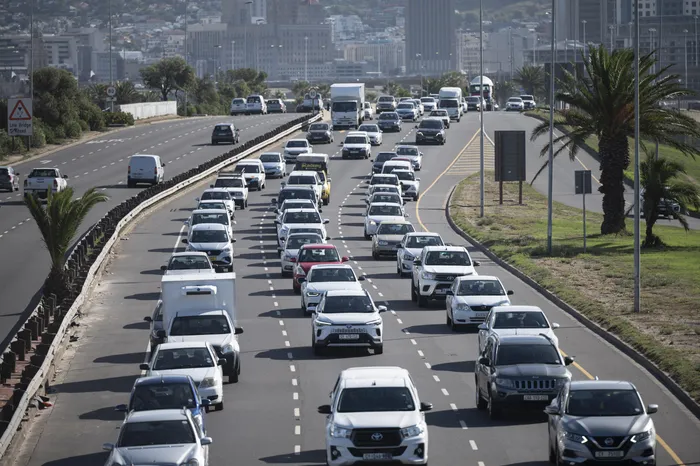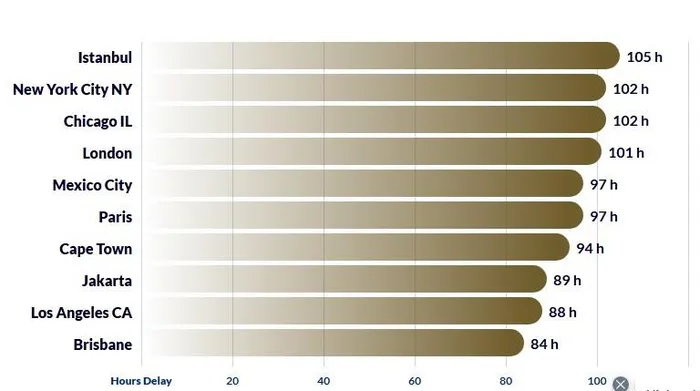The hidden costs of Cape Town's traffic congestion

Cape Town ranks 9th in global congestion, impacting commuters.
Image: Armand Hough / Independent Newspapers
Cape Town, once celebrated for its scenic beauty, is now in the spotlight for its traffic congestion. The city ranks as the ninth most congested globally, with commuters losing an average of 94 hours annually to delays, equating to nearly four days stuck in traffic.
The congestion not only reflects wasted time but also highlights the growing frustration, fatigue, and stress affecting thousands of residents, raising serious concerns about quality of life.
According to the 2024 Global Traffic Scorecard, Cape Town was ranked the ninth most congested city in the world, with motorists losing an average of 94 hours per year to delays.
But these statistics don’t just represent wasted time, they highlight the mounting frustration, fatigue and stress experienced by thousands of commuters across the city.

Cape Town ranks 9th in global congestion.
Image: INRX: Global Traffic Scoreboard
To put it in perspective, 94 hours equals almost four full days a year spent sitting in traffic.
In 2023, that figure was 83 hours, showing a rise in congestion levels. Many major routes such as the N1, N2, R300, and M3 are frequently gridlocked during peak hours, with travel times extending far beyond what drivers expect.
Urban growth, combined with a return to in-office work, has intensified traffic volumes. This makes commuting a daily struggle for many, especially those travelling between outlying suburbs and central business areas.
Prolonged traffic delays have been linked to significant mental and emotional strain.
Sitting in heavy traffic regularly can trigger stress, irritability and fatigue, leading to what’s often described as “commuter burnout”.
Psychologists explain that this form of chronic stress results from long-term exposure to stressful environments - in this case, being trapped in congestion for extended periods with little control over the situation.
Regular commuters report feelings of frustration, tension, and mental exhaustion. Over time, such daily stress can contribute to sleep problems, mood changes, and reduced concentration, ultimately affecting productivity and overall well-being.
Several structural factors contribute to Cape Town’s traffic woes:
- Low vehicle occupancy rates. Most cars on the road carry only one or two occupants, increase the total number of vehicles.
- Urban sprawl. Residential areas remain far from employment hubs, forcing long commutes into central districts.
- Inadequate public transport coverage. Limited transport options push more people towards private vehicles.
- Road capacity. Infrastructure expansion has not kept pace with population and vehicle growth, creating bottlenecks along key corridors.
- Peak-hour travel patterns. The morning and afternoon rush remains heavily concentrated, with few commuters shifting outside of peak times.
Traffic congestion affects more than just drivers’ patience. It also translates into lost productivity, higher fuel consumption and increased wear and tear on vehicles.
For individuals, the time lost in traffic eats into personal and family time, contributing to fatigue and emotional stress.
Furthermore, heavy congestion has environmental consequences. Idling vehicles emit more carbon dioxide and pollutants, contributing to air quality degradation and urban noise pollution.
Get your news on the go, click here to join the Cape Argus News WhatsApp channel.
Cape Argus